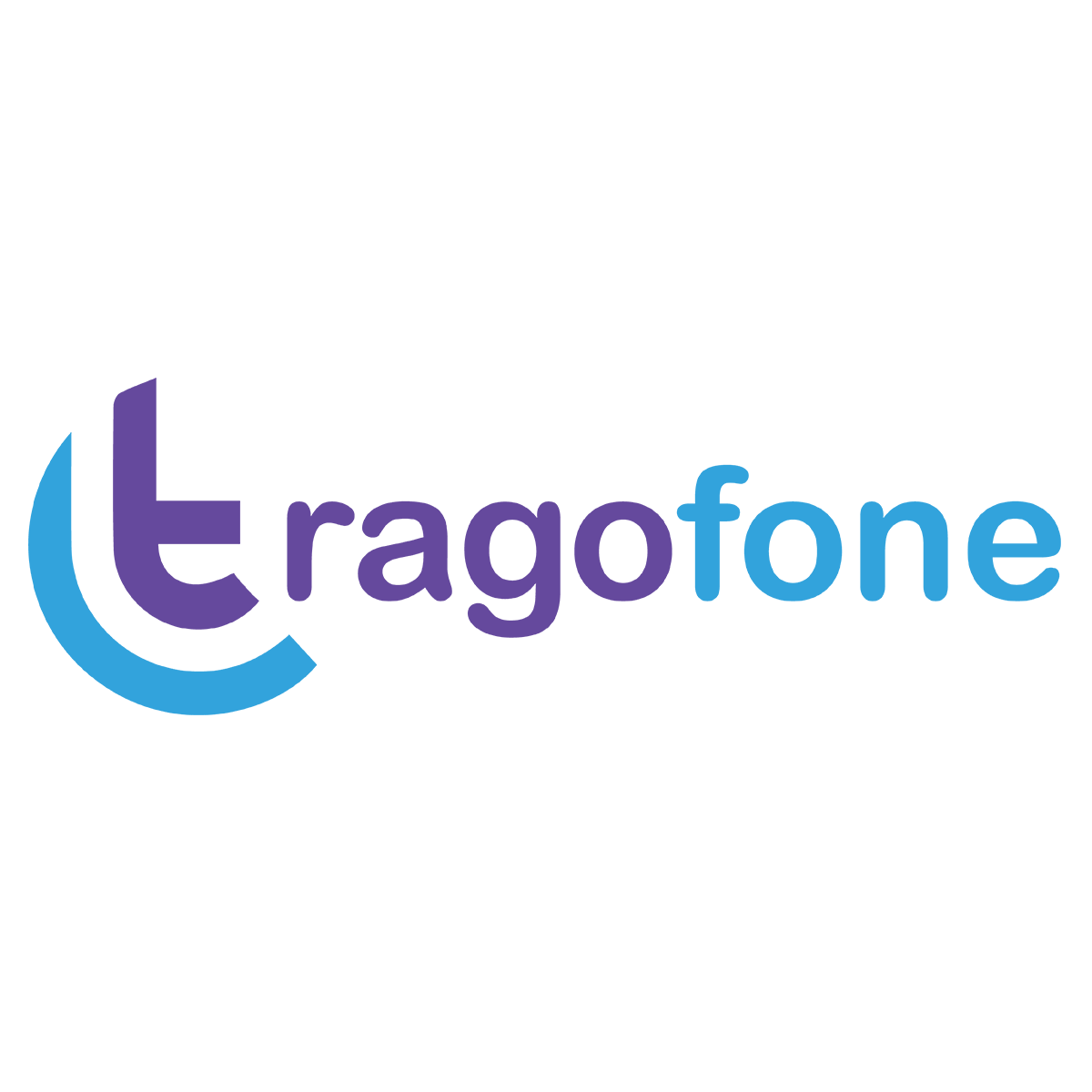Yes, softphone software can be accessed from different devices and platforms. Most softphone providers offer both desktop and mobile versions of their software, making it easy to transition between platforms. Furthermore, softphone software works with a variety of operating systems, including Windows, macOS, iOS, and Android. Users may now easily access their softphone from a variety of devices and platforms, making it a versatile and accessible communication tool.
List of 20 Best Softphone Software
Evoice is a digital voice logging software for small businesses. Streamline call management and elevate your professional image with the flexibility to work from anywhere. Evoice allows you to efficiently handle calls, store critical messages, and st...Read More Evoice
Ring4 is a business phone system that is revolutionizing the way companies communicate. With its affordable pricing and comprehensive features, Ring4 is setting a new benchmark for online phone solutions. Say goodbye to the hassle of multiple SIM car...Read More Ring4
Meet YouMail solution to stop annoying robocalls and spam while revolutionizing your voicemail experience. With its cutting-edge call protection features, YouMail safeguards your privacy and declutters your inbox. Enjoy effortless visual voicemail an...Read More YouMail
Vodia PBX is a communication platform that transforms your mobile devices, laptops, and PCs into highly efficient VoIP clients. Its seamless integration with business software, state-of-the-art data security, and features like multimedia messaging an...Read More Vodia PBX
Sipgate offers a cloud-based telephony and IVRS solution with advanced features such as call handling, team collaboration, missed call notifications, and call forwarding. Say goodbye to traditional phone systems with its streamlined and efficient pla...Read More sipgate
OnSIP is a VOIP solution designed specifically for small businesses. With advanced technology and top-rated customer support based in the U.S., OnSIP ensures 100% secure communication. With features such as web, desktop, and mobile apps, video confer...Read More OnSIP
Acrobits Cloud Softphone is a low-code solution for creating custom softphone applications. Its advanced features include messaging, file sharing, and push notifications, optimizing communication for both Android and iOS users. Regular updates and ef...Read More Acrobits Cloud Softphone
Tragofone - the leading VOIP SIP Softphone that surpasses all communication needs. Featuring cutting-edge WebRTC compatibility, Tragofone guarantees exceptional security and top-quality performance. With effortless auto-provisioning, setting up Trago...Read More Tragofone
Mizu Software is a Windows-based softphone designed to revolutionize your communication experience. With its extensive range of features including SIP device compatibility, call recording, contact management, and audio/video conferencing capabilities...Read More Mizu Software
iPlum is a mobile application that caters to the communication needs of businesses with strict security and HIPAA compliance requirements. Equipped with features like a dedicated line for calls and texts, it ensures confidentiality and efficiency. Th...Read More iPlum
Bria is is a communication solution designed for businesses of all sizes. Its advanced features seamlessly integrate voice, video, and messaging, promoting enhanced collaboration and productivity. With secure and reliable communication capabilities,...Read More Bria
Five9 is a contact center solution that revolutionizes traditional contact centers into top-notch customer engagement centers. Fully understanding the complexities and costs of operating a contact center, Five9 is dedicated to providing innovative te...Read More Five9
CallRail is a call tracking solution for marketers driven by data. Simplify your customer acquisition process with our user-friendly self-service software. Unlock valuable insights from phone calls to enhance your marketing strategies. Empower your t...Read More CallRail
Switchvox, from Digium, is a business phone system software designed to improve communication and collaboration in your workplace. With its user-friendly web-based interface, you can monitor call queues and facilitate seamless communication from anyw...Read More Switchvox
Zoiper is an advanced IVRS software that takes communication security to the next level by encrypting all VoIP calls. It supports a wide range of devices such as Outlook, Windows/Mac, LDAP, XMPP, XCAP, Android, and iOS, giving you the freedom to conn...Read More ZoiPer
Linphone is PBX system that enables you to easily create group chats, host HD video conferences, and share files with multiple users. Its intuitive interface makes setting up a PBX system effortless and efficient. Experience the convenience and produ...Read More Linphone
Telzio is a complete phone solution crafted specifically for small businesses and enterprises. It harnesses the power of the internet to provide a vast range of professional features, ideal for fulfilling your communication requirements. Featuring a...Read More Telzio
Discover the efficiency and convenience of Dialpad, the top cloud-based telephony solution designed for seamless team communication. Say goodbye to disruptions with crystal clear voice and video calls, all accessible from anywhere and anytime. With D...Read More Dialpad
UniTel Voice is virtual phone system that turns your cell phone into a complete business phone. With the ability to forward calls, texts, and faxes to your teams home or office devices, UniTel Voice provides a seamless communication solution for your...Read More UniTel Voice
3CX is a VoIP business phone system designed for versatility and ease of use. With its open-platform design, you have the power to manage phone usage from any location, whether on-premise or in the Cloud. Plus, built-in backup and restore features en...Read More 3CX
Learn More About Softphone Software
- What Is Softphone Software?
- What Are The Recent Trends In Softphone Software?
- Benefits Of Using Softphone Software
- Important Factors To Consider While Purchasing Softphone Software?
- What Are The Key Features To Look For In Softphone Software?
- Why Do Businesses Need Softphone Software?
- How Much Time Is Required To Implement Softphone Software?
- What Is The Level Of Customization Available In Softphone Software?
- Which Industries Can Benefit The Most From Softphone Software?
- Conclusion
What Is Softphone Software?
Softphone software is a communication tool that enables users to make and receive phone calls via the internet from a computer or mobile device. It functions as a virtual phone system, providing standard phone services such as call routing, voicemail, call recording, and more without the need for real hardware. One of the primary advantages of softphone software is its cost-effectiveness.
It eliminates the need for traditional phone lines and equipment, making it a more cost-effective option for organizations of all sizes. It also includes tools like call analytics and call recording, which provide crucial data for firms to better their communication strategy. Softphone software provides flexibility and mobility. Users can make and receive calls from anywhere in the world as long as they have access to the internet.
This is especially useful for remote or mobile personnel, who may communicate with the rest of the team and clients without relying on a physical office phone. Another benefit of softphone software is its integration capability. It is easily integrated with other communication systems such as CRM software, email, and instant messaging, resulting in a smooth and effective workflow. When selecting for softphone software, consider call quality, usability, and compatibility with various devices and operating systems. It is also recommended to select a dependable and reputable company who provides excellent customer service and timely updates.
What Are The Recent Trends In Softphone Software?
Latest Trends in Softphone Software:
1. Integration With Unified Communications (UC) Solutions: One of the most notable trends in softphone software is its integration with Unified Communications (UC) solutions. Softphone applications may now integrate smoothly with other communication tools like email, chat, and video conferencing platforms. This provides users with a more streamlined and efficient communication experience by meeting all of their communication demands in a single consolidated platform.
2. Increased Mobility And Remote Work Support: With the advent of remote work and the requirement for flexible communication, softphone software has evolved to give greater mobility. Many softphone programs now have mobile versions, allowing users to make and receive calls, check voicemail, and participate in video conferences from any location with an internet connection. This has made communication more accessible and convenient, hence addressing the needs of modern, distant work situations.
3. Advanced Capabilities For A Better User Experience: Softphone software has evolved, with a focus on offering consumers with advanced capabilities that improve their communication experience. These include call recording, statistics, and advanced call routing options. These capabilities not only improve the user experience, but they also assist organizations in tracking and analyzing their communication to make better decisions.
4. Integration With Artificial Intelligence (AI) Technology: Another trend in softphone software is the use of artificial intelligence (AI) technology. This enables intelligent call routing, which ensures that calls are sent to the most relevant person or department. AI technology also offers capabilities such as automatic call transcription, sentiment analysis, and chatbot integration, which improves communication efficiency and effectiveness.
5. Increased Security And Compliance Requirements: As communication becomes more digital, the importance of security and compliance grows. Softphone software has responded to these demands by implementing advanced security features like as data encryption, multi-factor authentication, and regulatory compliance with HIPAA and GDPR. This gives users peace of mind that their communications are secure and compliant.
6. Cloud-Based Solutions: The adoption of cloud technology has had a huge impact on the softphone software industry. Many softphone apps are now available as cloud solutions, reducing the need for organizations to host their own infrastructure. This has made softphones more accessible and cost-effective for organizations of all sizes.
Benefits Of Using Softphone Software
Softphone software is quickly becoming popular among organizations and people as a modern and effective phone system. It provides an alternative to traditional landline phones and hardware-based phone systems by allowing users to make and receive calls over the internet. Whether you are a small business owner or a remote worker, here are some of the extraordinary benefits of using softphone software.
1. Cost-Effective: Perhaps the most major advantage of softphone software is its affordability. By eliminating the need for expensive hardware and landline services, it drastically lowers the costs associated with traditional phone systems. Furthermore, most softphone software provides low-cost or even free international calling options, making it an excellent alternative for enterprises with worldwide reach.
2. Flexibility And Portability: Softphone software does not limit your phone system to a single place. As long as you have an internet connection, you can access your phone system from anywhere, making it ideal for remote workers, freelancers, and multi-location organizations. It also provides versatility in terms of communication channels, supporting audio, video, and instant messaging, resulting in improved cooperation and efficiency.
3. sophisticated Features: Softphone software has a variety of sophisticated features that improve your communication experience. Softphone software includes features like as call forwarding, call recording, auto-attendant, and voicemail to email transcription. Furthermore, most providers constantly update their software with new features, guaranteeing that you always have the most recent and advanced capabilities.
4. Simple Setup And Management: Installing softphone software is quick and easy. It does not require any specific technological knowledge, and most providers give simple user instructions and customer support to help you through the procedure. Once set up, controlling your phone system is simple, and you can easily modify your settings and features via a user-friendly web-based interface.
5. Integration With Business Tools: Softphone software works perfectly with other business tools and applications, streamlining and optimizing your process. For example, you can combine it with your CRM or customer support software to boost efficiency and improve service.
Important Factors To Consider While Purchasing Softphone Software?
Softphone software is a popular option for firms wishing to improve their communication systems. However, with so many options available, it can be difficult for purchasers to make the proper decision.
To assist you in finding the best softphone software for your needs, here are some crucial considerations to consider before purchasing.
1. Compatibility: Before purchasing any softphone software, make sure that it works with your current hardware and operating system. This will save you time and money in the long run and eliminate compatibility difficulties.
2. Features: Because various softphone software offers different features, it is critical to assess your requirements and locate software that meets your demands. Common features to look for are call forwarding, routing, voicemail, and call recording.
3. Usability: No matter how powerful softphone software is, it will only be beneficial if it is easy to use. Look for software with an intuitive layout and simple navigation so that your employees can use it with no training.
4. Call Quality: Because the fundamental function of softphone software is to make and receive calls, it is critical to evaluate call quality before making a purchase. Look for software that supports HD voice technologies and use dependable protocols such as SIP and RTP.
5. Integration: If you already use other communication tools, such as CRM or helpdesk software, think about how the softphone software can integrate with them. This will help to streamline your communication operations and increase efficiency.
6. Mobile Compatibility: With the development of remote working, it is critical to have softphone software that works with mobile devices. This will allow staff to make and receive calls on the fly, maintaining continuous contact.
7. Security: Because softphone software handles sensitive information, it is critical to select software that includes strong security measures. Look for software that uses encryption, encrypted connections, and other security methods to protect your data.
8. Cost: Softphone software is available at various price points, therefore it is critical to assess your budget and select software that fits inside it. However, keep in mind that the cheapest option isn't necessarily the most reliable.
9. Customer Assistance: The software provider must give dependable customer help both during and after the purchase. Look for companies that provide 24-hour support, so you can obtain assistance whenever you need it.
10. Free Trials And Demonstrations: Finally, before making a final decision, it is usually a good idea to test the software using free trials or demos. This will provide you hands-on experience and allow you to assess whether the program matches your requirements.
What Are The Key Features To Look For In Softphone Software?
Softphone software is a crucial tool for businesses trying to streamline communication and boost productivity. With so many options available on the market, it might be difficult to select the ideal one for your organization.
To make an informed decision, below are the essential things to look for in softphone software:
1. Compatibility: The first and most important element to consider when choosing a softphone software is its compatibility with your current systems and devices. It should work flawlessly with your choice operating system, hardware, and other communication tools like CRM and email.
2. Call Management: Effective call management is essential for any softphone software. Look for options like as call forwarding, call transfer, call recording, and voicemail to ensure a seamless and uninterrupted contact with clients or colleagues.
3. Audio And Video Quality: The quality of audio and video during calls has a huge impact on the communication experience. Your softphone software of choice should provide clear and sharp audio and video calls, even with limited internet bandwidth.
4. Mobile-Friendly: As remote work becomes more common, having mobile-friendly softphone software is crucial. It should be compatible with both iOS and Android smartphones, allowing you to stay connected on the road.
5. User-Friendly Design: A cluttered and unclear design can reduce your team's productivity. Look for softphone software with an easy-to-use interface that can be customized to your preferences.
6. Cooperation Tools: Softphone software should not only make communication easier, but also improve team cooperation. Look for tools like file sharing, screen sharing, and chat to help boost teamwork and streamline workflows.
7. Security: Data security is a significant responsibility for all businesses. To protect your sensitive information, ensure that the softphone software you choose includes strong security features such as encryption and secure data storage.
8. Customer Support: If there are any technical issues or questions, a dependable customer support team is essential for a smooth communication experience. Look for softphone software vendors who provide 24-hour assistance to enable continuous connection.
Keeping these vital qualities in mind, you may choose the best softphone software for your organization. Always think about your individual needs and budget before making a decision. We hope this information helps you discover the ideal softphone software for your company's communication requirements.
Why Do Businesses Need Softphone Software?
Softphone software is a valuable tool for firms wishing to improve their communication processes. It is a sort of application that allows users to make and receive phone calls over the internet while utilizing a computer or mobile device as a virtual phone. This eliminates the need for traditional landlines, enabling more efficient, cost-effective, and adaptable communication. One of the primary reasons firms want softphone software is for remote collaboration.
With the development of remote work and the growing popularity of virtual teams, softphone software allows employees to stay connected and communicate with one another from anywhere in the world. It overcomes the physical limits of traditional phone systems, enabling continuous communication and cooperation across several places.
Furthermore, softphone software provides a diverse set of capabilities that might improve the entire communication experience. These features include phone recording, call forwarding, voicemail, and video conferencing, among others. With these features, businesses may increase customer service, staff communication, and overall efficiency. Furthermore, softphone software is significantly less expensive than traditional phone systems.
It eliminates the need for pricey gear and lowers the cost of long-distance calls. Businesses can also save money on maintenance and service fees because the software is simple to install and administer. Another key feature of softphone software is its scalability. As businesses expand and their communication requirements grow, softphone software can simply adapt and accommodate these changes.
It enables for simple growth without the need for extra hardware or complicated setups, making it a viable option for enterprises of all sizes. Finally, softphone software improves enterprises' flexibility and mobility. It enables employees to utilize their personal devices as virtual phones, allowing them the flexibility to work from wherever.
This is especially handy for sales teams or personnel who are frequently on the move, as they can stay in touch with colleagues and clients regardless of where they are. Overall, softphone software is an important tool for firms that want to streamline their communication procedures and stay connected in today's fast-paced corporate environment. Its remote work capabilities, extensive feature set, low cost, scalability, and flexibility make it a vital investment for modern enterprises.
How Much Time Is Required To Implement Softphone Software?
The time required to develop softphone software varies based on a number of factors. When estimating the implementation timetable, it is vital to consider the complexity of your business processes, the number of users, and the softphone supplier you have chosen. The installation time for softphone software can range from a few weeks to a few months.
This includes the time spent setting up the software, configuring it to match your specific business requirements, and training your team on how to use it efficiently. However, some software suppliers provide a rapid and easy setup process, allowing you to begin utilizing their softphone solution in a couple of days. It is also important to keep in mind that if your company has unique or complex requirements, the implementation time will increase.
In this instance, the software provider may need more time to tailor the solution to your exact requirements. Similarly, the number of people that will be using the softphone can affect the deployment timeline. The more users, the longer it may take to configure and train everyone on how to use the softphone. To achieve a seamless and timely installation process, you must first understand your business requirements and successfully convey them to the softphone provider.
This will allow them to personalize the program to your specific requirements and reduce implementation delays. Finally, it is critical to select a dependable and reputable softphone provider who provides exceptional customer service and assistance during the setup process. With effective communication, teamwork, and a dependable source, you can have your softphone software up and running quickly, allowing you to reap the benefits of enhanced efficiency and productivity.
What Is The Level Of Customization Available In Softphone Software?
Softphone software can be customized to meet a variety of corporate purposes. Before making a purchase, buyers should grasp the level of customisation provided by various softphone software vendors. One of the most important elements to consider is user interface customisation. This refers to the ability to tailor the layout, design, and features of the softphone to your specific business requirements.
Some applications may have limited customization choices, but others may have a more flexible and robust user interface. Furthermore, the extent of customisation may differ in terms of integration with other business tools. For example, certain softphone software may provide seamless connectivity with popular CRM systems, allowing you to view client data and call records right from the softphone interface.
This level of connectivity can significantly improve the efficiency and productivity of sales and customer service teams. Another factor to consider is the opportunity to personalize call settings and features. This can include call routing, forwarding, recording, and voicemail services. More modern softphone software may include a high level of customization for call settings, allowing users to adapt their calling experience to their specific tastes.
In terms of branding, some softphone software may enable businesses to include their logo, colors, and company information in the user interface. This can help to increase brand awareness and recognition among customers. It is crucial to note that some levels of customization may incur additional costs, so carefully consider your business objectives and budget before choosing a softphone software that provides the appropriate level of customization for your organization.
Which Industries Can Benefit The Most From Softphone Software?
Softphone software is a communication tool that enables users to make and receive phone calls using the internet rather than traditional phone lines. It is a low-cost, adaptable solution that includes a variety of functions to improve internal communication. While the advantages of softphone software are obvious, you may ask which industries will profit the most from this technology.
Let's explore, we'll look at which industries can profit the most from softphone software, and why.
1. Contact Centers And Customer: Service Softphone software is extremely beneficial to call centers and customer service teams. Call center agents can work remotely by making and receiving calls from any location with an internet connection, enhancing their efficiency and productivity. Softphone software also includes call routing, interactive voice response (IVR), and call recording, all of which can help to speed the customer support process and increase satisfaction.
2. Sales & Marketing: Softphone software has the potential to revolutionize sales and marketing. Sales representatives may analyze their performance and make data-driven decisions by using capabilities such as call tracking and analytics. In addition, softphone software integrates seamlessly with customer relationship management (CRM) systems, making it easy to monitor and track client interactions. This leads to more successful sales and marketing initiatives, resulting in increased income.
3. Healthcare: Softphone software is very useful in the healthcare industry. With the ability to make and receive calls safely and remotely, medical practitioners can provide telehealth services to patients in rural or underserved locations. Call forwarding and voicemail transcription features can also help doctors and patients communicate more effectively, resulting in better patient care.
4. Education: Softphone software can help teachers, students, and parents communicate more effectively in the educational setting. Teachers and students can conduct virtual lessons and attend classes remotely thanks to the ability to make and receive calls from anywhere. Softphone software can also be connected with learning management systems, which improves the virtual learning experience.
5. Small Businesses And Startups: Small enterprises and startups can use softphone software instead of traditional phone systems, which is less expensive. They can save money on their phone bills and hardware by using internet-based calling. Softphone software also helps small firms provide a professional image by providing capabilities such as call routing, auto-attendant, and voicemail.
Conclusion
After conducting extensive study and analysis of various softphone software solutions, it is reasonable to conclude that investing in a high-quality softphone can significantly improve the communication and productivity of any business. With so many features and benefits available, it is critical to thoroughly analyze your unique requirements and select the one that best meets them.
When choosing a softphone, consider its compatibility with your existing systems and devices, as well as its usability. Additionally, reliability and call quality should be considered, as these elements can have a significant impact on the whole experience. When choosing a softphone, consider call forwarding, call recording, voicemail, and video conferencing options. These features can significantly improve communication and collaboration among your company. Furthermore, examine the softphone's scalability and cost-effectiveness.
As your company grows, you want to verify that the software can meet your objectives while still providing a sensible pricing structure. To summarize, investing in softphone software can significantly increase your business communication, cooperation, and productivity. By carefully considering your specific requirements and comparing features and cost, you can select the best softphone for your needs and help you achieve your business objectives. We hope this guide has given you helpful insights and will help you make an informed decision.
Softphone Software FAQ's
Can Softphone Software Be Accessed Across Multiple Devices And Platforms?
Is Softphone Software Future-Proof And Adaptable To Emerging Technologies Like AI, Blockchain Or IoT?
Softphone software is constantly growing and adapting to stay current with future technologies such as AI, blockchain, and IoT. As these technologies become more common and integrated into our daily lives, softphone software is being changed to reflect this.
Softphone software is regarded future-proof because of its flexibility and ability to interface with other software and hardware. It can readily adapt to new technological advances. This allows organizations to stay ahead of the curve and create cutting-edge communication experiences for their consumers and staff.
Is There A Free Trial Offered To Assess Softphone Software Before Committing?
Yes, many softphone software firms provide a free trial period to allow consumers to evaluate the product before making a commitment. This allows potential clients to evaluate the software's features, user interface, and general performance to determine whether it fulfills their requirements. Some companies may demand a credit card for the free trial, but consumers can cancel the membership before the trial time expires to avoid charges.
Does Softphone Software Offer Data Security Features And Meet Regulatory Compliance Standards?
Yes, most softphone software includes data security measures to ensure the confidentiality of sensitive information. This could include secure data encryption, multi-factor authentication, and secure socket layer (SSL) connection.
Furthermore, many softphone software suppliers adhere to regulatory requirements such as HIPAA and GDPR to protect data and assure compliance. It is best to consult the softphone software vendor for a comprehensive list of security features and compliance certificates.
Can Softphone Software Integrate Seamlessly With Existing Tools And Platforms?
Yes, softphone software is intended to work easily alongside existing tools and platforms. Most softphone programs are compatible with major operating systems such as Windows, Mac, and Linux, and they also integrate with popular business communication tools such as CRMs, help desk systems, and team collaboration platforms. This provides for a more efficient communication experience and increased productivity for businesses of all sizes.






















